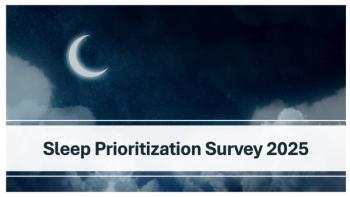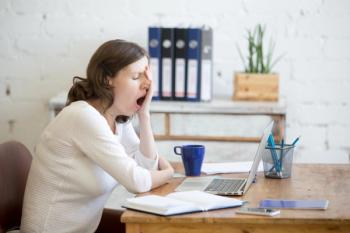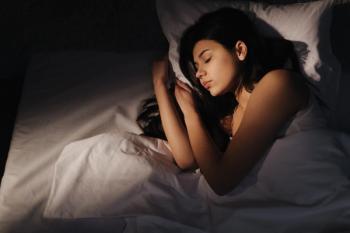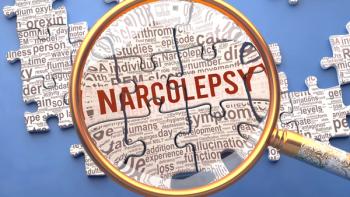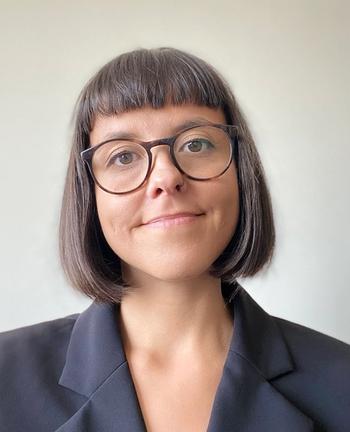
OSA Does Not Impact COVID-19 Vaccine Efficacy, Study Finds
The results were surprising, since other studies have suggested people who have sleep disruptions do not respond as robustly to vaccines.
Obstructive sleep apnea (OSA) does not appear to affect the efficacy of the COVID-19 vaccine, according to new research.The finding is something of an outlier among research investigating the links between vaccine efficacy and sleep disturbances.
The new report was
Corresponding author
“We have to consider that none of the previous studies were on vaccination against COVID-19 (mostly hepatitis and flu), but we were assuming we would have similar results,” he said.
In other words, he said, they embarked on the study expecting to measure “how much” and not “whether” OSA affects vaccine efficacy.
Pires and colleagues recruited a total of 122 fully-vaccinated people ages 60 and older for their study. Of those, 35 had mild or no OSA, 31 had moderate OSA, and 56 had severe OSA. All of the patients with an OSA diagnosis were screened using full-night type-1 polysomnography. Would-be participants were excluded if they had previously been diagnosed with COVID-19, or if they had received a dose of vaccine within the previous 15 days prior to testing, among other criteria.
After serum testing, just 9.8% of participants were considered seronegative according to anmmunoglobulin G (IgG) anti-SARS-CoV-2 test, meaning they had an IgG count of less than 50 arbitrary units per milliliter (AU/mL). The median IgG level in the sample was 273 AU/mL.
The investigators found no link between OSA severity and IgG levels and OSA severity, nor between IgG level and apnea-hypopnea index score.
In short: OSA status did not appear to impact how well participants’ immune systems responded to the vaccine.
Pires said it is unclear why no link was found, although he offered three possible explanations. reasons. First, it could be that the immune system’s response to COVID-19 is simply less sensitive to sleep than in other conditions. It could also be that the vaccines themselves are more robust. Or, it could be that the link between sleep and vaccine efficacy varies depending on which type of sleep disorder one is considering. “My guess,” said Pires, “is that the third explanation is the best one.”
He noted that previous research tended to focus on people subjected to experimental sleep deprivation, those who had work shift-related sleep loss, and people with insomnia.
“In our case, we were focusing on obstructive sleep apnea, a case that has several health consequences and profound impacts on sleep architecture, but that does not reduce total sleep time that much,” he said.
Thus, he cautioned, the study does not necessarily mean no sleep issue would affect COVID-19 vaccine efficacy, but only that OSA does not appear to.
Pires said his new study does not cause him to doubt the other research linking sleep to vaccine effectiveness. He said the existing literature is substantial that, at least in some circumstances, sleep and immune response to vaccines are linked.
“Therefore, I would recommend people sleep well and assure proper sleep time for at least a couple of days before and after vaccination for whatever disease,” he said.
But Pires added that it is important to keep all of the research in context. Even though previous studies have suggested sleep can affect the efficacy of certain vaccinations, the evidence suggests it merely reduces or delays the body’s immune response; it does not prevent the immune response altogether.
“I mean, someone who is sleep deprived doesn’t completely lose their ability to produce antibodies,” he said, “but the immune system becomes less efficient.”
Newsletter
Get the latest industry news, event updates, and more from Managed healthcare Executive.

